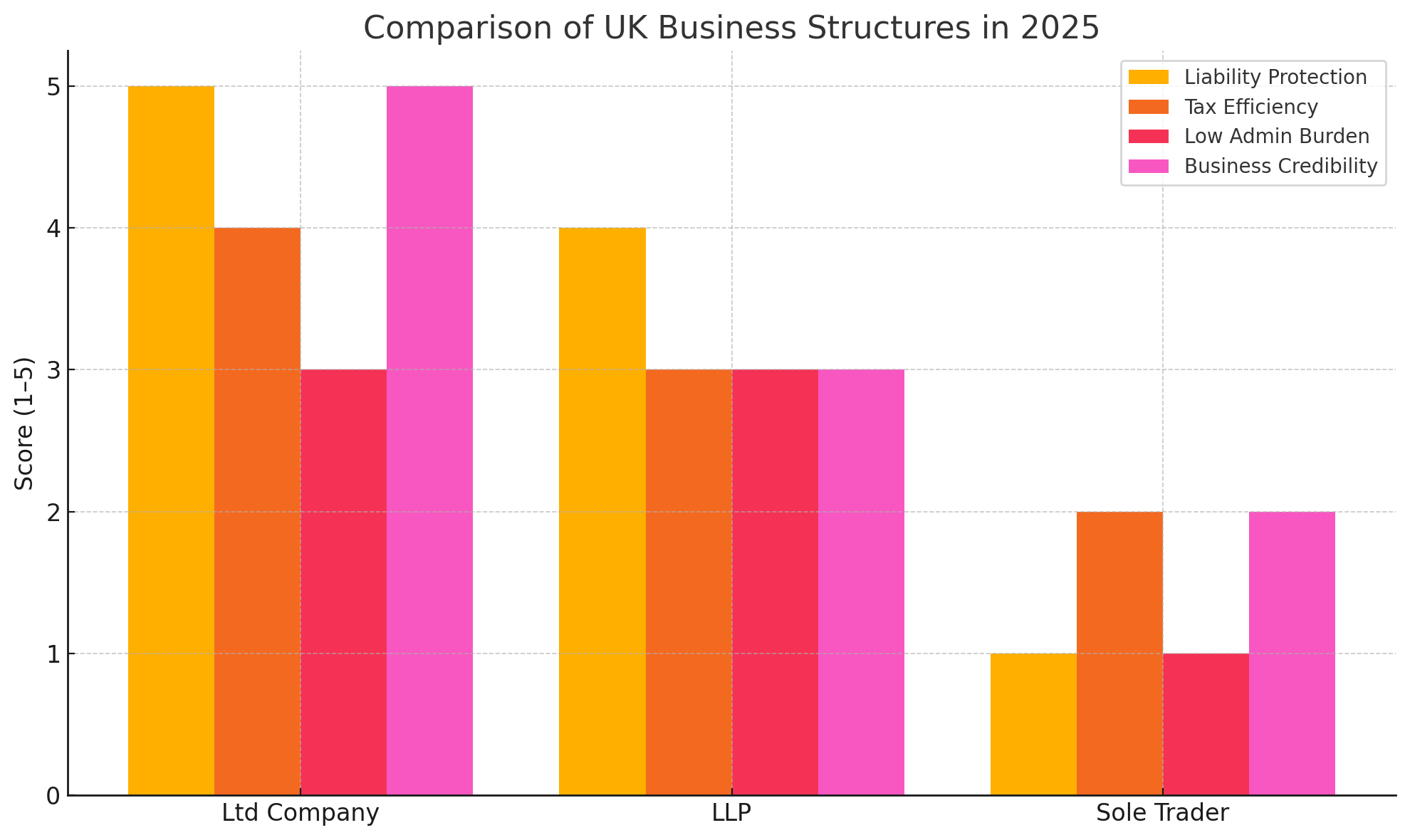Discover the key differences between UK company structures and find the right setup for your business goals in 2025. Starting a business in the UK in 2025? One of the first—and most important—decisions you’ll need to make is choosing the right business structure. Whether you're a UK resident or setting up from abroad, understanding the differences between a Limited Company (Ltd), Limited Liability Partnership (LLP), and Sole Trader is essential for legal compliance, tax efficiency, and long-term growth. In this guide, we break down the pros, cons, and legal obligations of each structure to help you make an informed choice for your new venture.
Overview of UK Business Structures
| Structure | Legal Status | Liability | Taxation | Best For |
|---|---|---|---|---|
| Ltd Company | Separate legal entity | Limited to share capital | Corporation Tax (19%-25%) | Scaling businesses, global trade |
| LLP | Separate legal entity | Limited to capital contributed | Self-assessed Income Tax | Partnerships in professional services |
| Sole Trader | Not a separate entity | Unlimited (personal liability) | Income Tax & NI | Freelancers, microbusinesses |

Private Limited Company (Ltd)
A Ltd company is a registered, separate legal entity that offers limited liability to shareholders and is regulated under the Companies Act 2006.
Advantages
- Limited liability protection
- Separate legal entity
- Tax-efficient for growing businesses
- Professional and credible structure
- Dividend options for profit distribution
Disadvantages
- Must comply with Companies House filings
- Directors’ legal responsibilities
Limited Liability Partnership (LLP)
An LLP offers a flexible partnership structure with limited liability, commonly used by professionals such as accountants, consultants, and legal firms.
Advantages
- Limited liability for all partners
- Flexible profit-sharing
- No Corporation Tax — taxed as individuals
Disadvantages
- Requires two or more members
- Annual filings to Companies House
Sole Trader
The simplest way to operate a business in the UK, suitable for freelancers and small businesses. Sole traders report to HMRC via Self Assessment.
Advantages
- Quick and easy to set up
- Low administrative burden
- Full control over the business
Disadvantages
- Unlimited personal liability
- Lower credibility for scaling
- Higher taxes at certain thresholds
Choosing the Right Structure
Your ideal structure depends on risk, scalability, and whether you're working solo or with partners.
| Scenario | Recommended Structure |
|---|---|
| Scaling with investment | Ltd Company |
| Solo freelancer | Sole Trader or Ltd |
| Professional partners | LLP |
| Non-UK resident | Ltd Company |
FAQs
Published: 8/7/2025 10:18:56 AM. Disclaimer: This article is for informational purposes only and does not constitute legal or financial advice.
For formal advice regarding UK company registration please…

